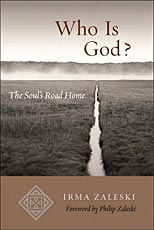"I once met a Korean Zen master who, after I had asked him some question I no longer remember, wagged his finger at me and said: 'Thinking, thinking, thinking! Checking, checking, checking! No good! No good! Don't know! Don't know! Don't I know! — That is your answer!' I don't think I really understood then what the master meant, but I never forgot him or his 'answer.' There was a joy in that meeting, a lightness of heart that I needed to touch when I felt confused, assailed by doubts, or in danger of taking myself too seriously.
"It was only years later, after I had encountered the Eastern Christian Tradition and became more familiar with its teaching and, through it, with the teaching of the early Fathers, that I was able to understand his words better, and to recognize how relevant they were for the Christian way to God.
"I realized that we should never attempt to solve our doubts in matters of faith by rational arguments or inner debates. Such debates will only confirm our reason's illusion that Truth is subject to its judgment. If we refuse to accept our unknowing and search for some kind of 'higher' or even esoteric knowledge that would explain it all, and forever do away with our doubts, our thinking may become ever more complicated and confused. We may get lost in a morass of speculation and mind-boggling interpretations, theories and fantasies. We may 'solve' the Mystery but lose both our rationality and our faith.
"Neither should we try to suppress our doubts, to push them away into some dark corner where they will fester and torment us even more. We must face our doubts, acknowledge them and simply let go of them. We shout 'Don't know!' at them not as a sign of our confusion and disbelief, but as a sign of our assurance that Truth is immeasurably bigger than all our thinking and checking, and cannot be judged by anything we may think or not think about its nature. Doubt, like all products of thought, is irrelevant to faith.
"If we keep doing that, if we practice 'not-knowing,' doubt — however distressing it may be — may yet prove to be not an enemy of our faith, but its ally and friend. Struggle with doubt may help us to understand ever more clearly the limits of thought, and thus become a training ground of faith: a powerful means of the 'unknowing' that is the heart of faith.
"There is no greater danger to faith, to wisdom and to love than the presumption that we know it all: that we have understood it all, that there is nothing more to discover or learn. Doubt makes it very difficult for us to fall into such a presumption. It forces us to recognize how little we really know, how little we have understood, how much infinitely more there is to learn. Doubt makes it possible for us to approach the Mystery as if it were for the first time: with our hearts and minds open, ready to receive a new vision, ready to embrace it all over again. Doubt is the way of beginning again."
